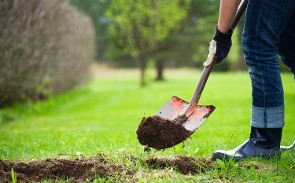5 Tips to Prepare for a Disaster

Across the country, we have friends and family members who are at risk of natural disasters. From hurricanes and tornadoes to wildfires, we want you and your families to be safe. Regardless of the type of storms you see in your area, here are a few basic tips you can follow.
-
Monitor the weather. An important part of keeping everyone safe is knowing what is happening. With the prevalence of smartphones, it is easy to stay current on quickly changing weather conditions.
-
Have a plan. The second step in storm preparedness is having a plan. When dangerous weather is approaching, it is critical everyone in the family knows what to do and where to go. While the plan will differ depending on the type of storm, it is a good idea to run through scenarios as a family regularly.
-
Keep an emergency kit. When a storm strikes, there may be limited access to resources we are accustomed to, such as electricity. We are often told to have an emergency kit stocked with water, flashlights (and batteries), non-perishable food, and important documents, but few people do. While it may not be realistic to keep an emergency kit year-round, if you live in a storm-prone region, it may be a good idea to put something together before the severe weather season begins.
-
Keep List of Emergency numbers/information. We all know the universal number in an emergency is 911, but those lines can get overwhelmed with calls in times of widespread damage. Keep a list of numbers that will allow you to get necessary updates if a storm were to strike. You may also choose to have one point of contact outside the area who you can notify that you are safe.
-
Safeguard important documents. Keep copies of important documents, such as insurance papers, identification, and medical records, in a safe place. Consider using both physical and digital copies for added security.
Emergency preparedness isn't just about reacting to a crisis—it's about being ready for anything. By taking simple steps like monitoring weather, creating a plan, and organizing an emergency kit, you can ensure the safety of your family and community. Don't wait until the last minute—start preparing today to stay one step ahead of any disaster.
An insurance company that cares about you and insuring the things you wish to be insured.
Get a Quote> Find an Agent>

